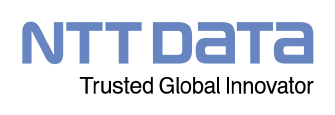In this day and age, software is everywhere, and so there is an ever-growing need for quality assurance. Most companies struggle to find testers for their applications in a multi-technology scenario where developing a technological product using 18 (or more) technologies in it is quickly becoming a reality.
In addition, however necessary application testing may be, it has always been a pain point for most development teams, due to both time constraints and difficulty to cover all possible case scenarios of each application.
The existing testing automation solutions are very specific and closed-off when it comes to both their workflow and the technology they use. There is also no way to access or get the code from the tests that these generate, so they have quite a strong vendor lock-in issue.
Here at Dedalow we have two very different approaches when it comes to application testing, both of which allow you to launch a single set of tests against multiple browsers:
If the application to be tested is a third-party one, we offer quality assessment tests, which may also be used as progress indicators in an application migration context:
We provide our testing platform, so your employees (or our Dedalow modelers, available upon request) can model the application’s business stories. Then we offer a double-automation process: we automatically generate code from the test modelling, and we automatically launch those automatic tests.
You will then have a set of tests that is both maintainable and automatically launch able (it can be integrated into your CI/CD) so you can assess the quality of a third-party application that was not built with Dedalow.
This testing platform can also be very helpful when it comes to application migration: whenever you need to migrate an application that was built in an obsolete technology into a modern one, you can check that it still responds the same way once it has been migrated using our testing platform, by modelling the business stories and launching the resulting set of tests as we covered earlier. This provides an excellent progress indicator, since the tests can be ran multiple times during the migration process, to check how it is going, and you will know that the application has been successfully migrated once 100% of the tests results are positive.
If the application to be tested has been built with Dedalow, we take advantage of our dual nature (low code development and testing automation tools) and leverage synergies between the development platform and the testing one:
Since Dedalows application models are interconnected, the business logic has already been modelled during the development process, therefore we can draw upon it to automatically generate the set of tests from there, saving your employees time and effort.
On top of that, we are an End2End platform and a full scope product, so we are also able to integrate your testing processes or tools into Dedalow: this way, if your set of tests is already defined in a tool like TestLink (which is already integrated into our platform), those can be drawn upon to automatically launch the tests, and even export the tests results directly back into TestLink once they have been run, so that they can be reviewed by your team.
Dedalow is also a collaborative tool: it is designed to support multiple people working in the environment at the same time, and it allows for information leveraging, so one employee’s modelling can be reused inside a colleague’s work.
The learning curve is very shallow, since your employees will not need to learn about syntax, but rather know how to drag and drop elements and fill in attribute information.
Lastly, whilst most testing automation tools focus solely in verification tests, Dedalow provides a validation perspective: we validate business rules, dramatically elevating the level of abstraction in which tests are being programmed.
We can also connect to any of your data sets in order to use them to test your applications: we allow you to have a single test, with a single data set, and multiple work conditions that can be modelled inside Dedalow.
Overall, Dedalow can help streamline your company’s application testing processes by simplifying and automating complex quality assurance tasks, while offering a wide approach to testing that ensures application testing processes are fully covered and cohesive with the application’s behavior.
This also means great time savings for your team, who can now dedicate all their efforts to developing the application without sacrificing its quality.

